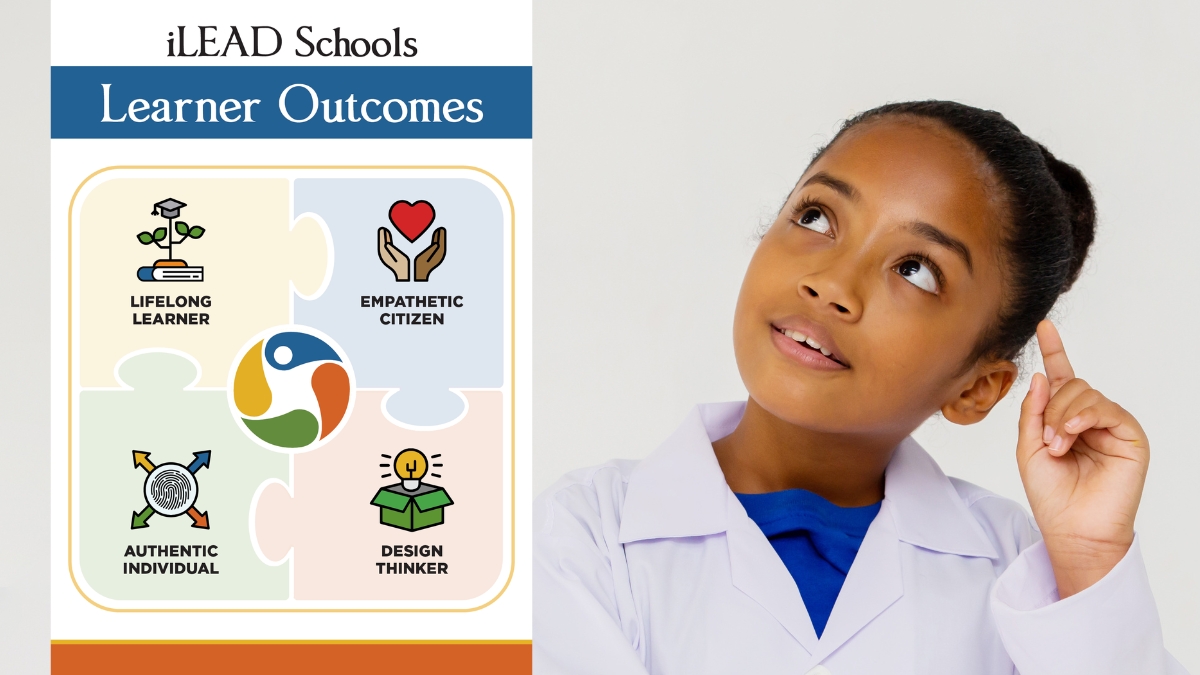iLEAD Antelope Valley Culture: Components of Social-Emotional Learning — Purpose

“The greatest thing in this world is not so much where we stand as in what direction we are moving.” ― Johann Wolfgang von Goethe
“Living with purpose.” The phrase evokes a range of thoughts and emotions, doesn’t it? When we choose to live with purpose, we choose to live proactively and decisively, rather than reactively.
As part of the iLEAD Antelope Valley approach to project-based learning with a social-emotional focus, one vital component is purpose. Within the social-emotional learning (SEL) framework, we recognize purpose as follows: You are oriented toward a future goal, and you can explain the reason for your goal.
To understand the importance of purpose, it’s helpful to examine another key element of iLEAD Antelope Valley’s approach to education: the 7 Habits of Highly Effective People. Successfully living with purpose encapsulates several of the 7 Habits: Being Proactive, Beginning With the End in Mind, and Putting First Things First. Understanding and incorporating those steps into your life connects directly to having a clear sense of purpose.
Let’s dive a little deeper into those Habits.
- Habit 1: Be Proactive — With this habit, a learner can say, “I am a responsible person. I take initiative, and I choose my actions and attitudes.” Through developing this habit, kids are able to learn responsibility, initiative, self-control and self-management.
- Habit 2: Begin with the End in Mind — With this, a learner can say, “I plan ahead and set goals. I do things that have meaning and make a difference. I look for ways to be a good citizen.” In turn, they are learning to have purpose and vision, and developing skills of planning, self-management and reflection.
- Habit 3: Put First Things First — By practicing this habit, a learner is saying, “I spend my time on things that are most important. I set priorities, make a schedule, and follow a plan.” This habit develops skills of prioritization, planning and time management, and follow-through.
These habits influence a child’s sense of purpose and attitude. When learners embrace the value of thinking and doing with purpose, they can develop stronger self-esteem, improve social skills and empathy, and are empowered to enrich the world around them.
When learners understand the importance of approaching things — from school projects to life goals — with proactivity and the end in mind, they begin to grasp the value of living with purpose.
Watch: On Purpose
RECENT POSTS

Schoolwide Learner Outcome: Design Thinking
iLEAD is excited to continue our Schoolwide Learner Outcomes series. Our December focus is design thinking. This article has several tips to help you cultivate design thinking in your child:… Read More

Upcoming Events
iLEAD AV Studio Fri., 12/19: Learner Free Day – No School for Learners Fri., 12/19: Reports of Progress Sent Home Fri., 12/19-Mon., 1/12: Winter Break Mon., 1/12: Professional Development for… Read More

The Valet Process at iLEAD AV Studio
In an effort to keep iLEAD AV Studio learners, families, and staff safe, please remember to follow these valet procedures: Drop-off starts at 8:30 AM. Learners will not be admitted… Read More


